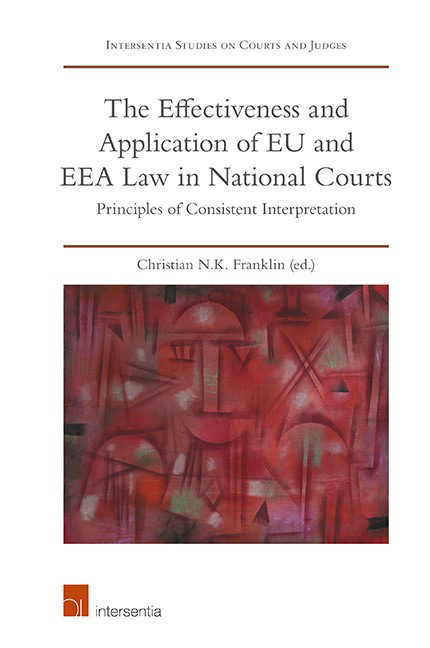 The Effectiveness and Application of EU and EEA Law in National Courts
The Effectiveness and Application of EU and EEA Law in National Courts Cyprus
Published online by Cambridge University Press: 31 January 2019
Summary
THE BIRTH OF THE CYPRIOT CONSTITUTIONAL LEGAL ORDER
The Republic of Cyprus is a relatively “ young “ Republic, since the small island only gained the status of an independent and sovereign state in 1960 after the Zurich and London Agreements. The Agreements, reached between Greece and Turkey, provided a plan for the establishment of an independent state. They comprised three treaties on the basis of which the Constitution of the newly created state was draft ed. The three treaties were the Treaty of Guarantee, the Treaty of Alliance and the Treaty of Establishment, which collectively provided, inter alia, for Greece, Turkey and the UK to guarantee the independence, territorial integrity and security of the Republic, the establishment of Greek and Turkish military contingents in Cyprus, and the preservation of two British sovereign base areas in Cyprus.
The Treaty of Establishment is incorporated into the 1960 Cyprus Constitution. The Treaty of Guarantee and the Treaty of Alliance, which are annexed to the Constitution (Annexes I and II respectively), have been given constitutional force by virtue of Art. 181 of the Constitution. The Cyprus Constitution was described “ as the centrepiece of an intricate network of international agreements and undertakings, delicately but inextricably interwoven with one another and with the Constitution itself “. Papasavvas gives five attributes to the 1960 Constitution, namely “ imposed, rigid, complex, anti-democratic and dividing “. Following the withdrawal of the Turkish Cypriots from the institutions of the Republic shortly after its birth in 1964, the Cypriot government has continued acting on the basis of the “ law of necessity “. It is within this framework that the Republic of Cyprus is an actor in international law.
NATIONAL COMPLIANCE WITH INTERNATIONAL LAW AND CONSTITUTIONAL RULES ON INTERNATIONAL ORGANISATIONS
Cyprus is a hybrid system stemming both from civil law and common law traditions and arguably drawing both from monism and dualism. Treaties, conventions and international agreements need to be ratified by the relevant authorities of the Republic in accordance with Art. 169 of the Constitution, the latter remaining the supreme law of the Republic under Art. 179(1) of the Constitution.
- Type
- Chapter
- Information
- The Effectiveness and Application of EU and EEA Law in National CourtsPrinciples of Consistent Interpretation, pp. 495 - 524Publisher: IntersentiaPrint publication year: 2018


